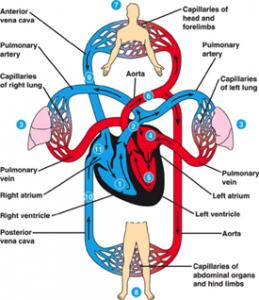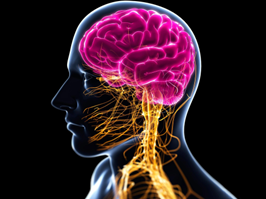Organ Systems: Circulatory 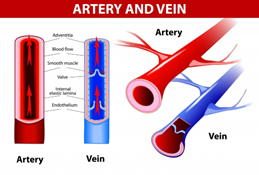
At the time of writing this blog post I am 42 years old. For 42 years, my heart has kept me alive, pumping blood around my body carrying oxygen, glucose and other nutrients to every cell in my body via a complex network of arteries, veins and capillaries, as well as back to itself to ensure it also has the required resources to continue to pump.
The arteries have thick walls to combat the higher pressures as they are the vessels which are coming from the heart and so need to deal with a higher pressure. The veins flow back to the heart and so do not need to deal with such high pressures, but do need to cope with the possibility of blood potentially slowing down too much and possibly going the wrong direction, so they have clever valves to stop this from happening.
The heart itself is separated into two halves. The right hand side receives low oxygen (deoxygenated) blood via the vena cava into the right ventricle. This blood is low in oxygen as it has delivered oxygen to every cell in the body. The blood then moves to the right atrium and gets pushed out of the right pulmonary artery towards the lungs to get more oxygen. After this the blood flows back to the heart, now replenished with oxygen (oxygenated) and into the left side. More specifically, through the pulmonary vein and into the left atrium. It then moves into the left ventricle before being pumped out of the aorta to deliver oxygen to every cell in the body.
That monstrous paragraph very briefly describes the circulatory system. This is one of the many systems in our body that work tirelessly to keep us alive! I, for one, am very grateful for mine and I do what I can to keep it working well. Other systems include:
WHAT IS SEEING? PART 1: HOW MOST PEOPLE ‘SEE’
Organ Systems: Nervous
This is responsible for delivering messages around the body via electrical impulses through very long and thin cells called neurons. These neurons bundle together into things called nerves. Some neurons receive information from the outside world via receptors which are sensitive to sound, light, touch, temperature, pressure and so on and send that information towards our central nervous system. These neurons are called sensory neurons. They then relay this information towards a muscle via other neurons called motor neurons.
If this is a reflex action, such as moving your hand away from something hot, it will bypass any conscious part of your brain and your hand will flinch away before you are even aware you have touched anything hot. The nervous system is the only reason we know anything about what is going on, where we are, what we want to do with our lives and it is responsible for sending signals which allow us to tell our body what to do.
Organ Systems: Digestive
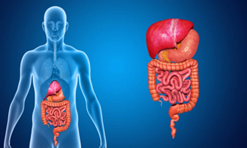
When we get hungry and stuff a burger in our mouth, doesn’t it feel good? The signal to eat is not part of the digestive system, but what our body does to the food is the digestive system. The digestive system processes the food we eat and sorts out what we need from it and sends it off to the necessary parts of our body.
Organ Systems: Reproductive 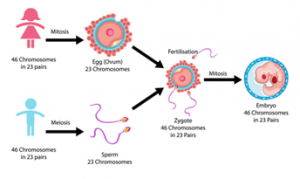
The reproductive system is what is responsible for enabling us to make more of ourselves! Within each of us we contain millions of instructions of how to make another human! Well, actually only half another human. We need someone of the opposite sex to get the second half of the instructions and then we can make another one of us!
There are other systems too as well and each one is mind-bogglingly insanely complex and incredible! For 42 years none of these have failed me yet!
Interconnectivity
Now, these various organ systems are made out of organs and the organs are made out of tissues of cells. Each organ and each cell is again just incredibly complex. It seems no matter how much we zoom in or out at life it remains an incredible mystery. We could zoom out again from a human and realise that we are dependent on many other humans as well the environment we live in. As I sit and type this post I can reflect on the fact that this is only possible because of millions of other humans who mined the computer parts, assembled the computer, maintained the internet, supplied my house with electricity, and manufactured my desk, chair, house… The trees that supply the oxygen I breathe…

You could imagine a red blood cell just going about its day moving around my body and being totally unaware it is part of something much greater: me! Likewise, as I go about my day typing up blog posts, talking with friends, teaching students; I too am part of something much greater and I think it is important to be a valuable part of whatever that is.
YOU WILL BE A DIFFERENT PERSON AFTER READING THIS POST
A bit about the author, Paul H:
 Paul is a qualified and experienced Physics, Maths, and Science teacher, now working as a full-time tutor, providing online tuition using a variety of hi-tech resources to provide engaging and interesting lessons. He covers Physics, Chemistry, Biology, and Science from Prep and Key Stage 3 through to GCSE and IGCSE. He also teaches Physics, Maths, and Chemistry to A-Level across all the major Exam Boards.
Paul is a qualified and experienced Physics, Maths, and Science teacher, now working as a full-time tutor, providing online tuition using a variety of hi-tech resources to provide engaging and interesting lessons. He covers Physics, Chemistry, Biology, and Science from Prep and Key Stage 3 through to GCSE and IGCSE. He also teaches Physics, Maths, and Chemistry to A-Level across all the major Exam Boards.
You can enquire about tutoring with Paul here


